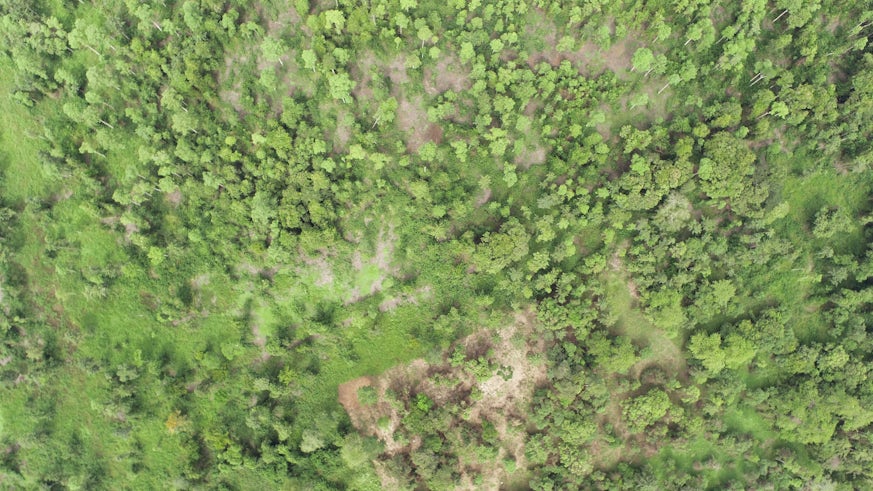Recovering tropical forests offset just one quarter of carbon emissions from new tropical deforestation and forest degradation, study finds
22 March 2023

Deforestation and forests lost or damaged due to environmental change are fast outstripping current rates of forest regrowth, according to an international team of scientists.
Their first-of-its-kind study reveals the total amount of carbon being taken up in aboveground forest growth was only enough to counterbalance a quarter (26%) of the current carbon emissions from tropical deforestation and degradation.
The research, published today in Nature, assesses the carbon storage potential and current limits of tropical forest regrowth in the fight against climate and ecological emergencies.
The research utilised Cardiff University expertise and was led by a team at Bristol University together with environmental scientists from the USA and Europe. Collaborating with Brazil’s National Institute for Space Research, the international group used satellite data across the world’s three largest tropical forests to investigate how much carbon they were removing from the atmosphere.
Dr T.C. Hales, Reader in Earth Science at Cardiff University’s School of Earth and Environmental Sciences who co-authored the study, said: “Currently there is a huge focus on tree-planting as a method for mitigating our carbon footprint. Leading businesses and governments have to focus on the restoration of barren ground, rather than considering the importance of forests that may have been affected by previous logging.

Our work shows the importance of preserving these messy degraded forests as a way of storing carbon from the atmosphere and providing other ecosystem benefits such as conservation of important species like the orang-utan.
Lead author Dr Viola Heinrich, who recently completed her PhD study co-supervised by Dr Hales at the University of Bristol, added: “Our study provides the first pan-tropical estimates of aboveground carbon absorption in tropical forests recovering from degradation and deforestation.
“While protecting ancient tropical forests remains the priority, we demonstrate the value in sustainably managing forest areas that can recover from human disturbances.”
The team used satellite datasets that can distinguish deforestation from other human-induced disturbances, such as logging and fire, to determine the types of forests regrowing.
Combined with information on aboveground carbon from the European Space Agency, and environmental variables, the team modelled the spatial patterns of forest regrowth in the Amazon, Central Africa and Borneo.
Dr Heinrich, now a Research Associate at the University of Exeter, said: “The carbon recovery models we developed can inform scientists and policy makers on the carbon storage potential of secondary and degraded forests if they are protected and allowed to recover.”
The team says their results also demonstrate the important carbon value of conserving recovering forests across the tropics.
They found degraded forests recovering from human disturbances and secondary forests regrowing in previously deforested areas remove at least 107 million tonnes of carbon from the atmosphere annually.
“Tropical forests provide many vital direct resources for millions of people and animals. At large-scales we need to protect and restore tropical forests for their carbon and climate value. On the local-scale, people need to be allowed to continue to use the forests sustainably,” added Dr Heinrich.

They found the type of human disturbances in Borneo results in the greatest carbon reductions in degraded forests, primarily due to the high intensity logging of economically valuable trees, compared to in the Amazon and Central Africa.
The climate and environment on Borneo also results in carbon accumulating about 50% faster than in the other regions.
Co-author Dr Luiz Aragão, Head of Earth Observation and Geoinformatics Division at the National Institute for Space Research (INPE) in Brazil, added: “Focusing on the protection and restoration of degraded and secondary tropical forests is an efficient solution for building robust mechanisms for sustainable development of tropical countries.
“This aggregates monetary value for the local to global environmental services provided by these forests, in turn benefiting local populations economically and socially.”
The team plans to build on their research, by improving the estimates of carbon losses and gains from different types and intensities of forest disturbance across the tropics.
Share this story
The School is committed to achieving the highest standards in research and education and to providing a rich and varied research-led environment.



